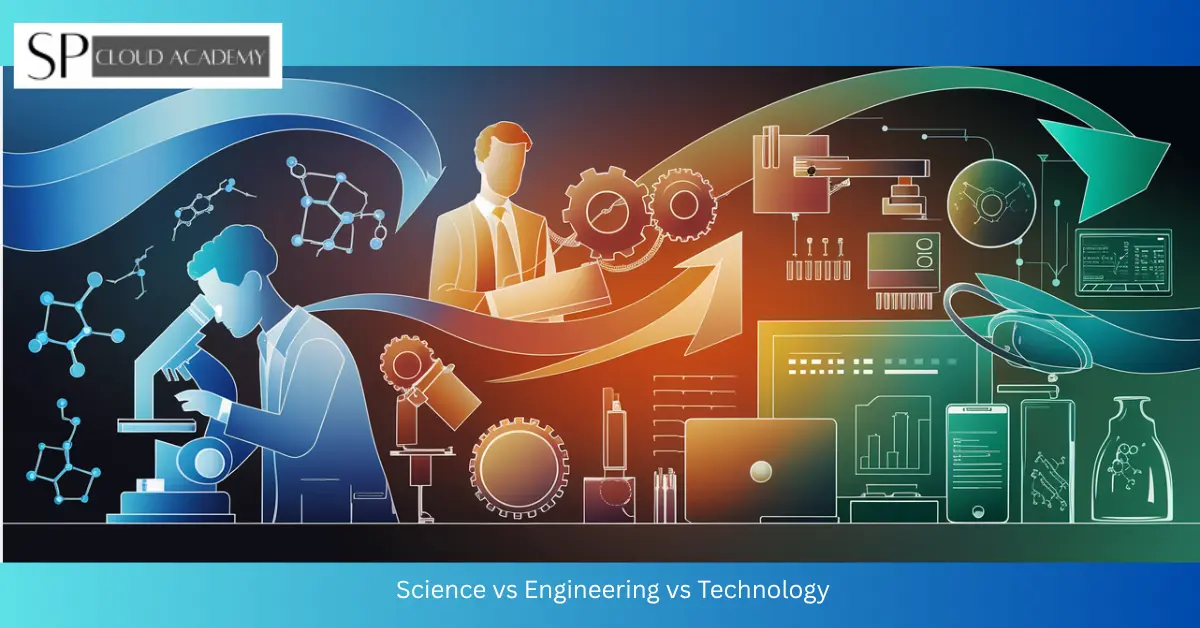In today’s dynamic job market, the age-old debate between the value of academic knowledge and practical, industry-recognized skills continues to rage. For aspiring professionals and seasoned veterans alike, understanding which path offers the most significant advantage is crucial for career progression and personal fulfillment. This comprehensive article delves into the nuances of both, exploring their individual strengths, potential overlaps, and ultimately, which one is more likely to propel you to the forefront of your chosen field.
The Foundation of Academia: A Deep Dive into Academic Knowledge
Academic knowledge, typically acquired through formal education in universities, colleges, and vocational schools, provides a structured and theoretical understanding of various disciplines. It encompasses a broad spectrum of subjects, from the humanities and social sciences to engineering and medicine. The pursuit of academic knowledge often involves rigorous coursework, critical thinking exercises, research papers, and examinations, all designed to foster intellectual growth and a comprehensive grasp of foundational principles.
One of the primary strengths of academic knowledge lies in its ability to cultivate critical thinking and problem-solving skills. Through exposure to diverse theories and complex concepts, students learn to analyze information, synthesize ideas, and develop logical arguments. This intellectual rigor equips individuals with a robust framework for approaching challenges, not just within their specific field, but also in broader life contexts. Furthermore, academic institutions often provide a fertile ground for networking, connecting students with peers, professors, and industry professionals who can offer mentorship and future opportunities.
However, academic knowledge can sometimes be criticized for its perceived disconnect from real-world application. While theoretical understanding is vital, the pace of technological advancement and industry evolution can outstrip the speed at which academic curricula are updated. This can lead to a gap between what is taught in classrooms and what is required in the workplace, leaving some graduates feeling underprepared for the practical demands of their roles. Despite this, the foundational understanding provided by academia remains an indispensable stepping stone for many professions, particularly those requiring extensive research, conceptual understanding, and a strong ethical framework.
The Power of Practicality: Exploring Industry-Recognized Skills
Industry-recognized skills, in contrast to academic knowledge, are competencies directly applicable and highly valued within specific professional sectors. These skills are often acquired through hands-on experience, apprenticeships, certifications, vocational training, and continuous professional development. They are pragmatic, results-oriented, and directly address the immediate needs and challenges of employers. Examples range from coding languages and digital marketing strategies to project management methodologies and advanced manufacturing techniques.
The most significant advantage of industry-recognized skills is their immediate utility. Employers are constantly seeking candidates who can hit the ground running, requiring minimal ramp-up time and contributing effectively from day one. Possessing these skills demonstrates a practical understanding of industry standards, tools, and processes, making individuals highly attractive in a competitive job market. Certifications from reputable industry bodies, for instance, can serve as a powerful signal to employers, validating an individual’s proficiency in specific areas and often leading to higher earning potential and faster career advancement.
Moreover, industry-recognized skills are inherently adaptive. As industries evolve, new skills emerge, and existing ones transform. Professionals who prioritize continuous learning and skill development are better positioned to remain relevant and competitive. This often involves engaging in ongoing training, attending workshops, participating in online courses, and actively seeking out opportunities to apply new techniques. The emphasis on practical application means that these skills are constantly refined and updated, ensuring that individuals remain at the cutting edge of their respective fields.
The Interplay: Where Academic Knowledge and Industry Skills Converge
While often presented as opposing forces, academic knowledge and industry-recognized skills are not mutually exclusive; in fact, they often complement and enhance each other. The most successful professionals frequently possess a blend of both, leveraging their theoretical understanding to inform their practical application, and using their practical experience to deepen their academic insights.
Consider the field of software engineering. A strong academic foundation in computer science provides the theoretical underpinning for understanding algorithms, data structures, and computational theory. This knowledge is crucial for developing robust, efficient, and scalable software solutions. However, without industry-recognized skills in specific programming languages, development frameworks, and agile methodologies, that theoretical knowledge would remain largely abstract. Conversely, someone with excellent coding skills but lacking a fundamental understanding of computer science principles might struggle with complex problem-solving or designing innovative systems.
Another example can be found in healthcare. Medical professionals undergo extensive academic training to understand human anatomy, physiology, pharmacology, and disease processes. This rigorous knowledge is non-negotiable. Yet, they also require highly specialized industry-recognized skills in diagnostic procedures, surgical techniques, patient communication, and the use of advanced medical equipment. The academic foundation provides the “why,” while the practical skills provide the “how.” The synergy between these two components is what ultimately defines a competent and effective healthcare provider.
The Shifting Landscape: What Employers Really Want
In today’s rapidly changing global economy, employers are increasingly looking for a hybrid skill set. While a solid academic background can open doors, it is often the combination of that knowledge with relevant, practical skills that truly sets a candidate apart. Recruiters are no longer solely focused on degrees; they are scrutinizing resumes for evidence of specific competencies, certifications, and demonstrable experience.
The rise of the “skills-based hiring” movement underscores this shift. Companies are recognizing that traditional educational pathways may not always produce graduates with the precise skills needed for immediate job demands. As a result, they are placing greater emphasis on evaluating candidates based on their abilities to perform specific tasks, solve particular problems, and adapt to evolving technologies. This often means looking beyond formal qualifications to portfolios of work, certifications from industry leaders, and testimonials of practical achievements.
Furthermore, “soft skills” or “power skills” have gained significant prominence. These include communication, teamwork, leadership, adaptability, critical thinking, and emotional intelligence. While often cultivated through both academic and practical experiences, they are increasingly recognized as essential for navigating complex work environments and collaborating effectively. Employers understand that even the most technically proficient individual will struggle without the ability to communicate ideas clearly, work collaboratively, or adapt to new challenges.
Navigating Your Career Path: Strategic Considerations
For individuals seeking to advance their careers, understanding the interplay between academic knowledge and industry-recognized skills is paramount. The optimal strategy often involves a careful balance and strategic integration of both.
For those just starting their careers, a strong academic foundation can provide a crucial competitive edge, particularly in fields that demand extensive theoretical understanding and research capabilities. A university degree can also serve as a gateway to entry-level positions and provide a structured environment for developing critical thinking and analytical skills. However, it is equally important to proactively seek out internships, co-op programs, and extracurricular activities that offer opportunities to gain practical, industry-relevant experience. These experiences can bridge the gap between theory and application, making graduates more immediately employable.
For seasoned professionals, continuous learning and skill development are non-negotiable. The landscape of virtually every industry is in constant flux, and relying solely on past academic achievements is a recipe for stagnation. Investing in certifications, workshops, online courses, and specialized training programs can help professionals update their skill sets, remain competitive, and pivot into new roles or industries. This lifelong learning approach ensures that individuals remain valuable assets to their organizations and adaptable to future challenges.
The Future of Work: A Blended Approach
The future of work will undoubtedly continue to emphasize a blended approach to skill development. Traditional academic institutions are increasingly partnering with industry to develop curricula that are more aligned with real-world needs. Furthermore, the proliferation of online learning platforms and micro-credentials is making it easier for individuals to acquire specific, in-demand skills outside of conventional academic settings.
The concept of “stackable credentials” is gaining traction, allowing individuals to earn smaller, specialized certifications that can be combined to form a more comprehensive skill profile. This modular approach to learning empowers individuals to tailor their education to their specific career goals, acquiring skills as and when they are needed, rather than committing to multi-year degree programs that may not always keep pace with industry demands.
Ultimately, the question of which will get you ahead – industry-recognized skills or academic knowledge – is not an either/or proposition. The most successful professionals will be those who strategically integrate both. They will possess a solid theoretical understanding of their field, coupled with the practical, hands-on abilities to execute tasks, solve problems, and innovate. The key lies in recognizing the unique value of each and proactively pursuing opportunities to develop a well-rounded and adaptive skill set that positions you for long-term success in an ever-evolving professional landscape. By embracing continuous learning and a holistic approach to personal and professional development, individuals can truly get ahead in today’s competitive world.
The Role of Adaptability and Lifelong Learning
Beyond the specific skills or knowledge acquired, the meta-skill of adaptability and the commitment to lifelong learning are perhaps the most crucial determinants of long-term success. The world of work is no longer static; industries emerge and disappear, technologies rapidly evolve, and job descriptions are constantly reshaped. In this dynamic environment, individuals who can quickly learn new concepts, acquire new skills, and pivot their career paths are the ones who will thrive.
Academic knowledge often instills a foundational capacity for learning – how to research, how to analyze, how to synthesize information. This ability to learn how to learn is invaluable. When combined with the practical application of industry skills, it creates a powerful synergy. For instance, a software developer with a strong academic background in computer science will likely find it easier to adapt to a new programming language or framework than someone who has only learned a specific language through rote memorization. Their understanding of underlying principles allows for quicker assimilation of new information.
Industry-recognized skills, on the other hand, often demand continuous updates. A digital marketer, for example, must constantly keep abreast of changes in search engine algorithms, social media trends, and advertising platforms. This necessitates a proactive approach to learning, whether through online courses, webinars, industry conferences, or simply by experimenting and observing market shifts. The commitment to lifelong learning ensures that one’s skill set remains relevant and valuable.
Therefore, rather than viewing adaptability and lifelong learning as separate from academic knowledge or industry skills, it’s more accurate to see them as the overarching framework that enables individuals to maximize the benefits of both. A curious mind, open to new ideas and dedicated to continuous improvement, will consistently find ways to leverage both theoretical understanding and practical expertise to their advantage.
Personal Branding and Networking: Leveraging Both Assets
In the quest for career advancement, both academic achievements and industry skills play a significant role in building a strong personal brand and fostering valuable professional networks. Your personal brand is how you present yourself to the professional world – what you are known for, your expertise, and your unique value proposition.
Academic credentials, such as degrees from prestigious universities, can lend immediate credibility and open doors to certain professional circles. They signal a level of intellectual rigor, dedication, and a foundational understanding of a discipline. This can be particularly impactful in fields where advanced degrees are standard or highly valued, such as law, medicine, or scientific research. Academic conferences and alumni networks also provide excellent opportunities for connecting with like-minded individuals and potential mentors.
However, industry-recognized skills and demonstrable experience are increasingly becoming the bedrock of a compelling personal brand. A robust portfolio of projects, successful case studies, or certifications from leading industry bodies speak volumes about your practical capabilities. These achievements showcase your ability to deliver results and contribute tangible value. Networking within industry-specific communities, attending trade shows, and participating in professional associations allow you to connect with peers, potential employers, and thought leaders who are directly involved in the practical application of your skills.
The most effective personal brands integrate both elements. Someone might be known for their academic expertise in artificial intelligence, and for their proven ability to implement AI solutions in real-world business contexts. This dual identity – a strong theoretical grasp combined with practical execution – creates a powerful and highly marketable professional profile. Leveraging both academic and industry connections can lead to a wider range of opportunities, from research collaborations to executive leadership roles.
The Entrepreneurial Edge: When Skills Outshine Degrees
For aspiring entrepreneurs, the balance between academic knowledge and industry-recognized skills often shifts significantly towards the latter. While a strong academic foundation can provide a valuable understanding of business principles, economics, or specific technological fields, it is often the practical, hands-on skills that are critical for launching and scaling a successful venture.
Entrepreneurs frequently need to be jacks-of-all-trades, at least in the initial stages of their businesses. This requires a diverse set of industry-recognized skills: marketing and sales to attract customers, financial management to maintain solvency, product development to create offerings, and leadership to build and motivate a team. Many successful entrepreneurs have learned these skills through experience, often starting small, experimenting, and adapting their approaches based on real-world feedback.
While an MBA might provide a theoretical framework for business strategy, an entrepreneur who has actually built and managed a functional e-commerce website, negotiated supply chain agreements, or run successful digital advertising campaigns possesses invaluable practical skills. These “do-it-yourself” capabilities are often more critical in the lean, fast-paced environment of a startup than a purely theoretical understanding.
Of course, this doesn’t diminish the value of academic knowledge for entrepreneurs. Understanding market dynamics, legal frameworks, or complex technological principles can be incredibly beneficial. However, for many, the drive to create and the ability to execute quickly, relying on a diverse set of practical skills, often takes precedence. The entrepreneurial journey frequently highlights the power of acquiring and applying skills directly in response to market needs and opportunities.
Conclusion: A Holistic Approach for Sustainable Success
In the final analysis, the question of whether industry-recognized skills or academic knowledge will get you ahead is best answered with a call for a holistic and integrated approach. Neither element alone provides a complete solution for navigating the complexities of the modern professional landscape. Sustainable career success is increasingly a function of how effectively individuals can combine the critical thinking and foundational understanding derived from academic pursuits with the practical, results-driven competencies honed through industry experience.
The most valuable professionals are T-shaped – possessing deep expertise in one or more specific areas (often gained through industry skills), coupled with a broad understanding across various disciplines (frequently fostered by academic knowledge). They are the individuals who can innovate with a strong theoretical basis, execute with precision, and adapt seamlessly to new challenges.
Therefore, for anyone looking to build a resilient and rewarding career, the strategy should not be about choosing one over the other. Instead, it should focus on strategically acquiring and continuously developing both. Seek out educational opportunities that offer a blend of theory and practice. Pursue certifications and hands-on experiences that complement your formal education. Embrace lifelong learning as a fundamental principle, consistently updating your knowledge and refining your skills. By doing so, you position yourself not just to get ahead, but to thrive in any professional endeavor, making you an invaluable asset in an ever-evolving world. The future belongs to those who master the art of integration, blending the best of academic rigor with the power of practical, in-demand skills.
See Also
-

The Ultimate Guide to Brainstorming: How to Turn Any Idea into Gold
-

The Hidden Secrets Behind Motivation Theory: What Really Drives Human Behavior
-

Short and Smart or Long and Strong? Choosing Between Skill-Based and Professional Diplomas
-

What’s the Real Difference Between Science, Engineering, and Technology?
-

Equality or Equity? The Hidden Key to Truly Inclusive Classrooms
-

Equality vs. Equity: Why Treating Everyone the Same Isn’t Always Fair
-

Teaching vs. Facilitating: Which Approach Shapes the Future of Engineering Education?
-

Paradigm Shifts in Lifelong Learning: Transform Your Mindset for Success
-

From Trend to Transformation: The Rise of Paradigm in Modern Life
